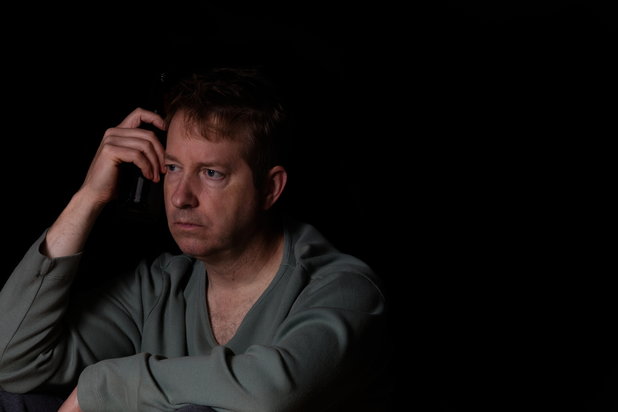The relationship between heavy drinkers and mental issues is well documented. Mental illness is defined as an abnormality in cognition, emotion, mood, or social function, which is severe in level and/or duration. There continues to be insurmountable and growing evidence that addictive substances, such as alcohol, increase the risk of mental health problems, such as depression and anxiety.
Alcohol abuse often leads to mental health disturbances. While alcohol can have a temporary positive impact on our mood when it is used constantly and for long periods of time, it can lead to mental health issues. Below, we take a look at how alcohol affects the different aspects of the human brain.
Alcohol and Brain Chemistry
People may drink because it makes them feel good—at first. Alcohol increases the amount of the chemical dopamine in the brain's reward center, which creates a feeling of pleasure.
However, these euphoric sensations are temporary
Since alcohol is a depressant, it has a negative effect on the chemicals in the brain. The result is often difficulty walking, blurred vision, slurred speech, slowed reaction times and even the potential of serious changes in the brain.
Alcohol affects brain chemistry by altering levels of neurotransmitters. Neurotransmitters are chemical messengers that transmit the signals throughout the body that control thought processes, behavior, and emotion.
Furthermore, alcohol affects the brain by slowing down the handling of information and it inhibits thought processes, making it difficult to think clearly.
Alcohol and Memory
Individuals, who drink heavily over a long period of time, may find that alcohol has toxic effects on brain cells.
According to the National Institute on Alcohol Abuse and Alcoholism, most heavy long-term alcohol users will experience some type of impairment of intellectual functioning. These changes can be life-altering and may not be able to be reversed.
Alcohol abuse may have many symptoms including confusion, impaired muscle coordination, and persistent problems with memory and learning ability. Often, these are symptoms of Wernicke Korsakoff syndrome (WKS). Actually, chronic alcohol abuse is the most common cause of WKS. You may not have heard of this serious brain disorder, but research supports that many chronic alcohol users who have thiamine deficiency will suffer from WKS.
Alcohol and Personality Changes
Alcoholic behavior often turns to actions that are selfish, angry or self-centered. Thus, friends and family may notice that normal personality traits disappear when their loved one becomes intoxicated.
Alcohol slows your brain’s synapses and chemically alters your body by affecting serotonin levels, the chemical responsible for transmitting signals of mood to your brain. Consequently, these physical changes cause your emotions to get out of control and cause you to say and do things you normally wouldn’t do. Aggression, egotistical behavior, and mood swings are very common in people who abuse alcohol.
In addition, alcohol affects sleep patterns and may alter personality traits. Our bodies and brains need to rest. It’s a myth that alcohol helps you sleep. Alcohol actually can disrupt the body’s ability to rest and upset the cycle of restorative sleep.
Alcohol and Anxiety
After one glass of wine, many people feel more relaxed. However, the long-term consumption of alcohol contributes to feelings of depression and anxiety and makes stress more difficult to deal with. This is because alcohol acts on the receptor sites for neurotransmitters and heavy drinking interfere with the proper functioning of neurotransmitters in our brains.
As mentioned previously alcohol changes levels of serotonin, which can aggravate levels of anxiety. Moreover, these feelings can include restlessness, nightmares, and general feelings of tension.
Research shows that people with alcoholism find it difficult to recover from traumatic events. Alcohol can evoke past memories of trauma or bring repressed feelings to the surface. These memories can be so powerful that they create overwhelming anxiety and depression.
Alcohol and Depression
If you or someone you care for has struggled with alcohol you have first-hand knowledge that alcohol impacts a person’s mood.
Alcohol is a depressant, which means it lowers the function of. The misfiring of certain neurotransmitters, such as serotonin, is directly related to clinical depression. In this situation, alcohol depresses the central nervous system and makes a person’s moods fluctuate. The prevalence of depression among alcohol-dependent persons is statistically high as cited in published research.
Symptoms of depression include:
-
Changes in eating and sleeping habits
-
Fatigue and general lack of energy
-
Loss of interest in daily life
-
Difficulty thinking and concentrating
-
Suicidal thoughts and actions
In some cases, depression can precede alcohol dependency. Some depressed people will turn to alcohol in an attempt to escape or make themselves feel better, but they, unfortunately, are only exacerbating the problem.
Finding Help
There are many treatment options and recovery programs for alcohol-related mental issues. It may require rehabilitation for dual diagnosis. This occurs when a person has two separate illnesses, such as depression and alcohol abuse, and each illness needs its own treatment plan.
Mood disorders and alcohol problems are both treatable illnesses. They are not moral weaknesses or character flaws. Lifestyle changes, medications, counseling and support groups are all helpful treatment choices.
|
If you or someone you know is seeking help from addiction, please visit our directory of treatment centers or call 800-891-8171 to speak to a treatment specialist. |








